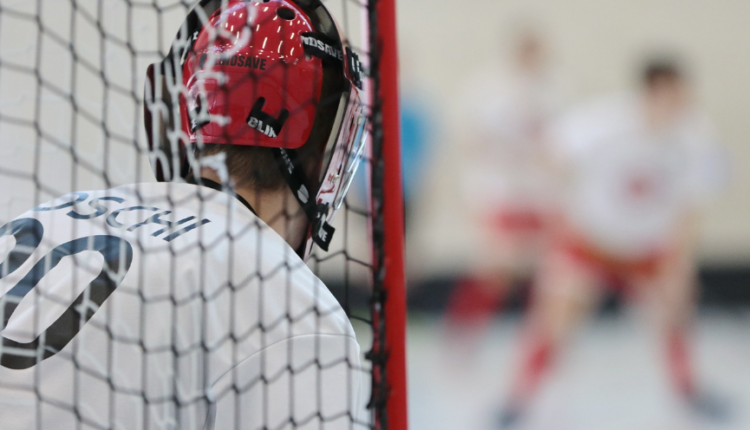Goalkeepers are traditionally seen as the last line of defense, their primary duty being to stop the opposition from scoring. However, there are moments when goalies defy expectations by scoring goals themselves. This rare but thrilling event raises an interesting question: Can a goalie shoot a goal? In this comprehensive guide, we explore the circumstances under which goalkeepers can score, famous instances of goalie goals, rules governing these situations, and the techniques goalies use to find the back of the net.
The Rules: Are Goalies Allowed to Score Goals?
The first aspect to consider is whether the rules of soccer and hockey allow goalkeepers to score. In both sports, goalies can legally score, provided they adhere to the standard rules of play.
Soccer Rules on Goalie Goals
In soccer, FIFA’s Laws of the Game do not prohibit goalkeepers from scoring. If a goalie kicks, throws, or deflects the ball into the opposing net without violating any rules, the goal stands. However, there are a few regulations to keep in mind:
- A goal cannot be scored directly from a goalie’s throw. If a goalkeeper throws the ball directly into the opposing team’s goal, it does not count.
- A goal can be scored from a goalie’s kick. This includes goal kicks, long clearances, or even a shot during open play.
- Penalty Kicks and Free Kicks: Goalkeepers can take penalty kicks and free kicks if designated by their team.
Hockey Rules on Goalie Goals
In ice hockey, the NHL and IIHF rules allow goalies to score. However, the circumstances under which they do so are unique. A goal scored by a goalie is valid if:
- The puck is intentionally shot or deflected by the goalie into the opposing net.
- The goalie is the last player to touch the puck before it enters the opponent’s goal.
Hockey goalies typically score when an opponent makes an own goal due to a misplay, but there are recorded instances where a goaltender has deliberately shot the puck into the net.
Techniques and Scenarios in Which Goalies Can Score
Scoring as a goalkeeper requires a combination of skill, timing, and sometimes a bit of luck. The following are the most common ways goalkeepers score in soccer and hockey.
Soccer Goalie Goals
- Long Clearances or Goal Kicks
- Occasionally, a goalkeeper’s long clearance can bounce over the opposing keeper and into the net. Factors such as wind, field conditions, and misjudgment by the opposing goalie can contribute.
- Set Pieces (Penalty Kicks and Free Kicks)
- Some goalkeepers take penalties or free kicks, particularly in crucial moments or shootouts.
- Attacking in the Final Minutes
- When trailing in a match, goalkeepers may join the attack on corner kicks or set pieces, leading to dramatic last-minute goals.
Hockey Goalie Goals
- Clearing Attempts That Go Into the Opponent’s Net
- A goalie may shoot the puck down the ice, aiming for an empty net when the opposing team has pulled their goalie for an extra attacker.
- Rebound Goals Where the Goalie Is the Last to Touch the Puck
- If an opposing player deflects a clearing attempt into their own goal, and the goalie was the last to touch the puck, the goalie is credited with the goal.
These situations are rare but create some of the most exciting moments in sports history.
Famous Goalkeepers Who Have Scored Goals
While goalie goals are uncommon, several famous goalkeepers have made their mark by scoring. Here are some of the most notable instances:
Soccer Goalkeepers Who Scored
- Rogerio Ceni (Brazil) – Holds the record for most goals by a goalkeeper, scoring 131 goals primarily from penalties and free kicks.
- José Luis Chilavert (Paraguay) – One of the highest-scoring goalkeepers, with 67 career goals.
- Alisson Becker (Liverpool) – Scored a dramatic last-minute header in 2021 to secure Champions League qualification for Liverpool.
Hockey Goalkeepers Who Scored
- Martin Brodeur (NHL) – Scored three goals in his career, the most by any NHL goalie.
- Ron Hextall (NHL) – First goalie to score a goal by shooting the puck directly into the opposing net.
These moments highlight how goalkeepers, though defensive players, can leave their mark offensively as well.
Challenges and Risks of Goalkeepers Attempting to Score
While thrilling, goalkeepers attempting to score comes with risks. Here are some challenges they face:
Soccer
- Leaving the Goal Unprotected: If a goalkeeper joins an attack, the opposing team can easily counterattack and score into an empty net.
- Accuracy and Power: Goalkeepers aren’t trained strikers, so their shooting ability may not match that of forwards.
- Tactical Considerations: Coaches may be reluctant to let goalkeepers leave their area unless absolutely necessary.
Hockey
- Risk of an Opponent Stealing the Puck: A mistimed clearing attempt can lead to an easy goal for the opposition.
- Handling and Stick Skills: Goalies primarily train for saves, not shooting, making accurate long-range attempts difficult.
- Game Situations: Most goalie goals happen when the opposing team pulls their goaltender, limiting scoring chances to specific situations.
Despite these risks, goalkeepers who score are celebrated as legends, given how rare these moments are.
Conclusion.
So, can a goalie shoot a goal? Absolutely! While rare, goalkeepers can and do score in both soccer and hockey. The rules allow for it, and history has shown that some keepers even make a habit of scoring. Whether through long clearances, penalty kicks, or strategic plays in the dying moments of a match, a goalie goal is always an extraordinary moment that excites fans and players alike.
As sports evolve, we may see more goalkeepers taking risks and trying to score. With the rise of ball-playing keepers in soccer and skilled puck-handling goalies in hockey, future generations may witness even more thrilling goals from the most unexpected players on the field or rink.


Comments are closed, but trackbacks and pingbacks are open.